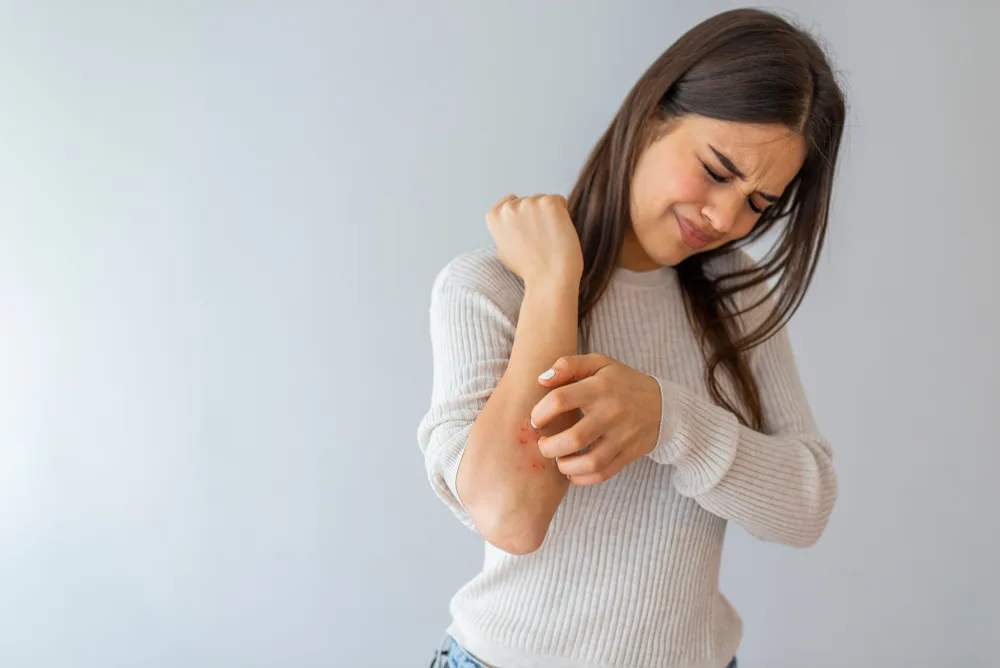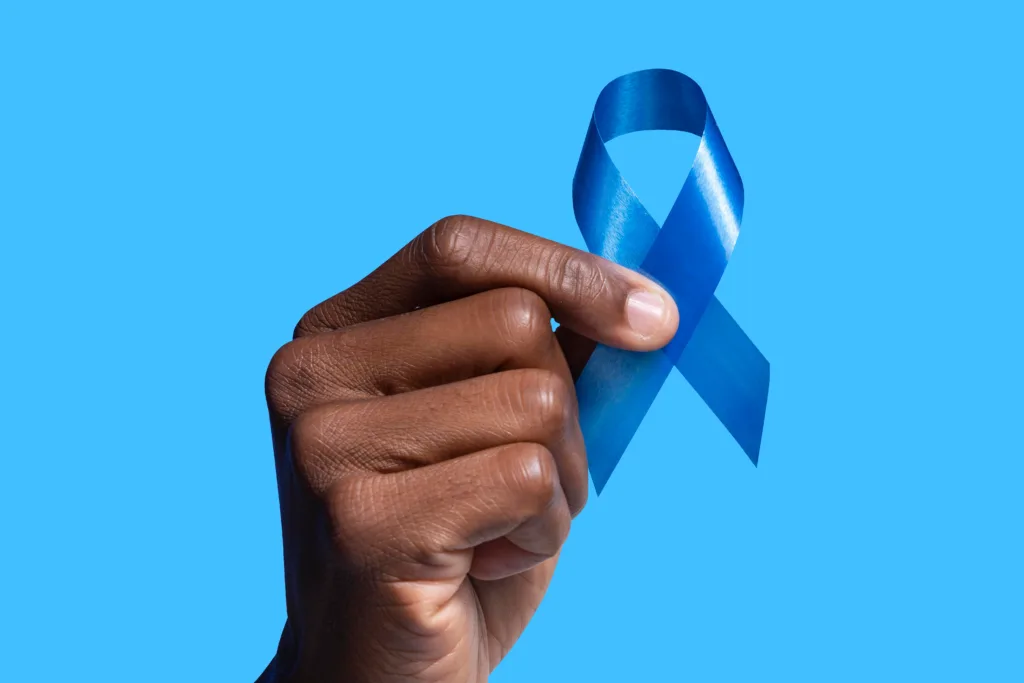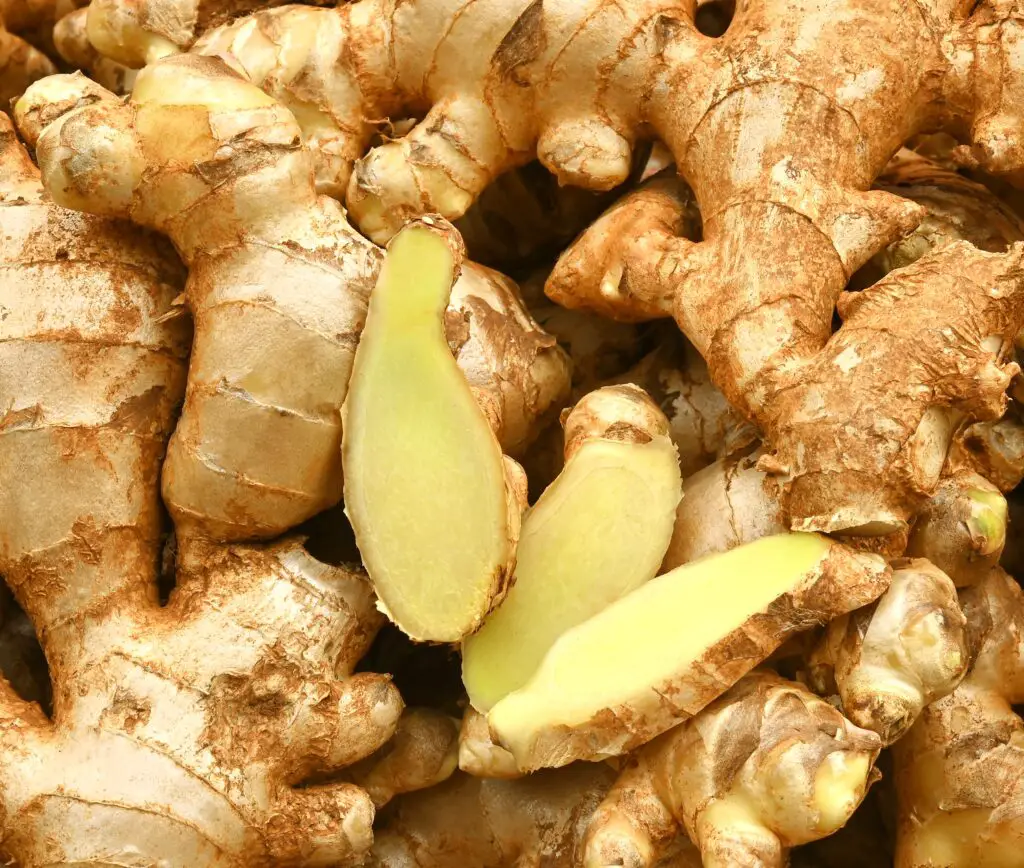Table of Contents
When your heart feels like skipping a beat, fluttering, or beating too hard, you may have heart palpitations. And when heart palpitations and headaches go hand in hand, it’s a double dose of discomfort.
Join us in unraveling the science behind a high heart rate and headache. We’ll explore its causes and how to treat it; what is the right time to call a doctor when you have a racing heart and constant exhaustion will also be covered.
Heart palpitations and headache —Causes and treatments?
Sometimes your heart might start racing when you have a headache. Many conditions and lifestyle factors could cause these two symptoms.
A fast heartbeat and headache may not be a big deal, yet sometimes they can be your body’s alarm bells.
Let’s explore the possible reasons and how we can treat them.
Dehydration warning
The duo of headache and heart racing is often an alarm to drink more water.
Our body needs water to function well. Even mild dehydration (as little as 2%) can weaken your stamina and lead to head pain and fatigue. Other signs of mild to moderate dehydration include (1, 2):
- Thirst, dry, or sticky mouth
- Dry, cool skin
- Infrequent urination
- Darker yellow urine
- Muscle cramps
When it gets severe, you might start feeling some other symptoms (1):
- Rapid heartbeat
- Rapid breathing
- Dry, shriveled skin
- Sunken eyes
- Not urinating
- Irritability or confusion
- Dizziness or lightheadedness
- Shock or unconsciousness
If you’re feeling dehydrated, drink up. That should treat the condition in most cases. In severe situations, you should get some fluids pumped straight into your veins.
Also, moderate your intake of alcohol, caffeine, and diuretics. They can drive your body to urinate often. If you’ve got diabetes, fever, vomiting, or diarrhea, always keep yourself hydrated. Don’t wait until you’re dried up (1, 3).
Excess caffeine
Caffeine is present in many popular drinks, including coffee, tea, energy drinks, and soda, and has been related to headaches and arrhythmias.
Three cups of joe daily (or less than 300 mg of caffeine) is safe and may safeguard against irregular heartbeat (4, 5). However, too much caffeine might increase your risk of abnormal heart rhythm (6, 7).
Consuming caffeine (even in medicine) might slightly increase your risk of getting chronic daily headaches, or CDH, in the long run (8).
Moreover, caffeine might help with migraines immediately. However, over a long period, it could worsen migraines (9).
The best way to handle this is to reduce caffeine intake. Yet you should quit it gradually. Otherwise, you might get severe head pain (10).
Stressful events
“Stress” refers to significant events you feel you can’t control or predict potentially hurting events (11).
When stress hits, your body sends out hormones to keep you alert and ready to take action. These hormones can also provoke a high heart rate and headache, known as a “fight or flight” response (12).
If you’ve been feeling stressed out lately, try some stress-management options. They can be a physical approach, such as doing light exercises and relaxing activities (dance, music, meditation, or tai chi). And remember to get enough sleep (13).
It’s optimal to make time for your hobbies and your loved ones. Another popular approach is focusing on what you can do and learning to say no to things you can’t do (12, 13).
Anxiety and panic attack
Anxiety is a feeling of worry and fear. If the fear takes over your body suddenly and repeatedly without any reason, you may have an anxiety disorder (14, 15).
Both anxiety and panic attacks can cause headaches and feelings of rapid or pounding heart pulses (15). Other symptoms are trouble breathing, sweating, dizziness, trembling, and tingling.
Panic attacks can last 10 minutes and be intense (15). Consider contacting a mental health professional for therapy when the attacks become uncontrollable.
The therapeutic path may involve “talk therapy” to understand your anxieties and meet your needs. Antidepressants and beta-blockers may supplement your treatment. It would also be helpful to practice some stress-management exercises (15).
Medications
Each medication contains its own side effects. Your head pounding and heart fluttering can be explained by an individual medication or a combo of drugs you’re taking. Some examples are:
- Vasodilators to address high blood pressure, such as nitroglycerin (16)
- Monoamine oxidase inhibitors to heal depression, such as tranylcypromine (17)
- Calcium channel blockers for many heart issues, such as nifedipine (18)
If you notice any side effects from taking those meds, contact your doctor immediately. Also, give them a heads-up if you want to stop taking any meds.
Your blood pressure
Blood pressure is the throbbing force of blood pushing against the walls of your arteries (19).
When the heart beats, the highest arterial pressure reached is the systolic pressure. In contrast, diastolic pressure is the lowest arterial pressure when the heart rests between beats (19).
Normal blood pressure should be under 120/80 millimeters of mercury (mm Hg). It means your systolic and diastolic pressure is less than 120 and 80 mm Hg, respectively (20).
High blood pressure
High blood pressure or hypertension is when your blood pressure is over 140/90 mmHg for a prolonged period (20).
While half of Americans have high blood pressure, many remain unaware of this silent killer. Patients usually don’t have symptoms until they develop into dangerous health issues, such as heart attack or stroke (20).
That’s why high blood pressure can be the root cause of your high heart rate and headache.
If you think your headache is due to high blood pressure, seek immediate medical attention to avoid serious harm. Your doctor may prescribe IV (that will be injected into you) medications to rapidly reduce your high blood pressure (3).
Low blood pressure
Low blood pressure (hypotension) is when your blood pressure is less than 90/60 mm Hg (21).
Hypotension often goes unnoticed, like hypertension, since there are usually no symptoms (22). Yet some people may experience headaches, heart racing, tiredness, dizziness, confusion, sore back or blurry vision, and nausea (21).
You possibly don’t need treatment for hypotension. Depending on your symptoms, you should take or adjust certain medications.
Your doctor may also suggest some lifestyle changes, like tweaking your diet or changing how you sit and stand (sitting down can help with the symptoms). Compression stockings will help if you have to stand for long periods (21).
Having anemia
Fast heartbeat and headache can be notable signs of anemia, impacting more than 3 million Americans. It happens when your body doesn’t have enough red blood cells to carry oxygen. Thus, less oxygen can enter your cells for metabolism. As a result, you may feel tired or weak (23).
The symptoms above could also be due to intense bouts of exercise. Pay attention to any other signs to make sure you have anemia (24, 25):
- Paleness or jaundice (yellowing of the skin)
- Shortness of breath
- Dizziness and fainting
- Cold hands and feet
- Restless legs
- Bleeding
- Chest pain
- Pica (the desire to eat non-edible items)
Around 3 million Americans have anemia (23). The condition results from insufficient iron or vitamin B12 in your diet or other conditions, such as autoimmune diseases (26).
Anemia can have serious consequences. If you suspect it causes fatigue or a racing heart, consult your doctor immediately.
To deal with anemia, consider your type of anemia and how serious it is. For the milder cases, you might need iron supplements, vitamins, or medicines to make more red blood cells (23, 26).
Aim to include more iron and vitamin B12 in your diet. Some familiar sources are lean meat, eggs, milk, and seafood. Nuts, beans, and dark green vegetables are also high in iron (27, 28).
Vitamin B12 is naturally found in animal products but not plant foods. Check out some fortified foods if you’re a vegan (28).
Blood transfusions are a standard and safe procedure for severe cases of anemia. In the worst scenario, you might need surgery or a blood and bone marrow transplant to treat the underlying cause of anemia (26).
An overactive thyroid (hyperthyroidism)
Hyperthyroidism is when your thyroid gland produces too much thyroid hormone. It can trigger a racing heartbeat, head pain, and other symptoms (29, 30):
- Anxiety and nervousness
- Poor concentration and sleep problems
- Fatigue and weakness
- Heat intolerance
- Increased appetite and sweating
- Nausea and vomiting
- Frequent bowel movements and diarrhea
- Hair loss
- Hand tremors and nail changes
- Skin rash on the shins
- Breast development in men
- Itchy or irritated eyes
- Protruding eyes (exophthalmos)
- Clammy, flushing, or itchy skin
Usually, you can treat hyperthyroidism with antithyroid medicines (propylthiouracil or methimazole). They can help shrink or block the effects of the extra thyroid hormone (29).
Radioactive iodine and surgery can also be applied to destroy or remove the thyroid gland in severe cases. But following these treatments, you’ll establish a lifelong practice of integrating thyroid hormone replacement pills into your routine (29, 30).
A doctor may also prescribe beta-blockers to help with symptoms such as rapid beats, tremors, anxiety, and sweating (29).
Having pheochromocytoma
Pheochromocytomas are rare tumors that come from chromaffin cells in the adrenal glands. These tumors are often non-cancerous (31).
The cause behind this is the release of too many hormones. The attacks usually last from a few minutes to hours with a set of symptoms (31, 32):
- Heart racing
- Headaches
- Sweating
- Shortness of breath
- Abdominal or chest pain
- Pale skin
- Anxiety and irritability
- High blood pressure
- Seizures
- Nausea, vomiting, and weight loss
Treating pheochromocytomas involves cutting out the tumor with surgery (32).
If they can’t do that, they might give you some medicine to manage those extra hormones. Unfortunately, radiation therapy and chemotherapy haven’t worked for this tumor (31).
Addictive substances
If you often drink alcohol, even in small amounts, it can increase your risk of heart and head throb (33, 34, 35).
Smoking could contribute to a throbbing heart and pounding head by increasing the heart tissue’s sensitivity to adrenaline (36, 37).
Moreover, using illegal drugs like amphetamines, methamphetamine, heroin, cannabis, or cocaine can also increase the risk (33, 38, 39).
Eliminating these substances can be challenging, so calling for help is best. Your doctor can figure out a plan that works for you.
Remember that alcohol hangovers can also lead to racing hearts and headaches. Take it easy, eat nutritious foods, and go slow.
Lifestyle factors like anxiety disorders, stressful events, daily caffeine, medicines, alcohol, and substance usage can contribute to headaches and heart racing. Some underlying conditions may also be the root cause, so getting that checked out and treated is important.
Can heart problems cause headaches and dizziness? The possible connection
Heart problems can trigger stress and anxiety, making your head and heart feel like they are pounding. Some heart medications might also bring on this duo.
An abnormal heart rate may keep your heart from getting enough blood flow, thus reducing blood flow to the brain and causing headaches (40).
Migraine and heart problems
Migraine is a severe and intense headache that can last long—even hours or days. If you start having trouble seeing things, that’s called a migraine with an aura (41, 42).
A study with nearly 12,000 people determined that those having migraines with aura were more likely to face atrial fibrillation (AFib) and even stroke (43).
People with certain heart defects are also more likely to suffer migraines. And if you get migraines, you might be more likely to have heart problems or a stroke later on (44).
Heart arrhythmia
Arrhythmia (abnormal heart rhythm) is usually caused by electrical signal problems (33). Severe symptoms like difficulty breathing or chest pain may require emergency medical care (45).
Several types of arrhythmia can cause heart flutters accompanied by head pain. Those types are:
Atrial fibrillation (AFib)
Atrial fibrillation (AFib) occurs when your upper and lower chambers don’t work together as they should (46).
It is caused by irregular electrical signals firing in the upper chambers, quickly spreading across the heart. Because of this, the upper chambers “twitch” (fibrillate) in a fast and chaotic way (46, 47).
AFib is the most common type of heart arrhythmia and was mentioned on 183,321 death certificates in 2019. It is the reason behind roughly 1 in 7 strokes (46).
People with diabetes, hypertension, obesity, and sleep apnea (pauses in breathing at night) are at more risk for AFib (47).
In addition to AFib headache, the victim may feel tired, dizzy, weak, sweaty, and short of breath. And if you have chest pain or pressure, you could have a heart attack. In this case, seek medical emergencies right away (48).
Premature ventricular contractions (PVC)
During a premature ventricular contraction (PVC), your heartbeat starts from a different spot than usual; thus, it can make for a short pause before your next regular heartbeat (49).
PVCs are common and can happen to anyone, with a 3%–20% occurrence rate worldwide (50).
PVCs can come alone or in patterns. Two in a row are called doublets, and three are called triplets. You start calling it ventricular tachycardia when you get three or more in a row (49).
Alcohol or tobacco consumption and lack of sleep can often lead to PVCs (49).
Supraventricular tachycardia (SVT)
Supraventricular tachycardia (SVT) is when your heart starts racing fast. The abnormal rhythm comes from abnormal electrical firing in the atria or the atrioventricular (AV) node and can be life-threatening (51, 52).
The heart’s normal electrical activity begins in the sinoatrial (SA) node and then spreads to the surrounding atrial tissue and the AV node. The signal is briefly delayed at the AV node before moving to the ventricles (52). This delay allows the atria to contract and empty before the ventricles contract (51).
Patients with supraventricular tachycardia may suffer chest discomfort, lightheadedness, syncope, or dyspnea (difficulty breathing).
In worse cases, they may go into shock, have low blood pressure, or start showing signs of heart failure. Some may not show any symptoms (52).
Some heart defects make you more likely to get migraines. Certain types of arrhythmia; such as atrial fibrillation (AFib), premature ventricular contractions (PVCs), or supraventricular tachycardia (SVT); can also make your head and heart feel like they’re pounding.
Racing heart and constant exhaustion — When to see a doctor?
You may experience headaches, a heart beating fast, and extreme fatigue for several reasons.
Some common causes may not require medical treatment. Ensure you can get enough sleep, control anxiety, and eat and drink well in these situations.
If you get these symptoms often or have any risk of heart disease, check in with a doctor. They could be red flags of anemia, hyperthyroidism, pheochromocytoma, and other conditions (29, 30, 31).
Try not to stress too much: it could also be from a tough workout. To avoid it, warm up properly before exercising, and avoid environmental risks such as high heat (53).
You should seek emergency medical care if other severe symptoms occur (45, 48, 54):
- Chest pain or tightness
- Fainting (also known as syncope)
- Trouble breathing or shortness of breath
- Feeling tightness in your chest, jaw, neck, arms, or upper back
The common causes of headaches, heart palpitations, and fatigue can be managed through lifestyle changes. But talk to a doctor if these symptoms happen frequently or if you’re at risk for heart disease. If you have chest pain or trouble breathing, go to the emergency room immediately.
Heart rate 120 after bath — What’s going on?
When you bathe with warm water, your heart races as part of your body’s natural response to regulate temperature.
A higher body temperature owing to warm water can drive blood vessels in your skin to dilate (get bigger). In turn, blood can flow through them more easily (55). This effect results in lower blood pressure (56).
Your body responds to low blood pressure by increasing the heart rate to ensure all your organs get enough blood and oxygen. Interestingly, even different baths (basin, tub, and shower) can have the same effects on the body (57, 58, 59).
Moreover, taking a hot bath may put stress on your heart. After bathing, your heart rate can shoot up within 20 seconds and then slowly come back down for minutes (58, 60).
In effect, people’s hearts can race up to 120 beats per minute after bathing (60).
Yet sometimes, it is not within your usual range, or you may have other symptoms like headache, chest pain, and dizziness. If this happens, consult a healthcare professional for a proper check-up.
A hot bath may increase your heart rate as part of your body’s response to regulate temperature. Different types of baths can have similar effects. After bathing, your heart rate might go up fast and then start coming down slowly for minutes.
Does sweating increase heart rate?
Yes, sweating can make your heart rate go up. You will lose fluids, causing your blood volume to drop. To compensate for the lack of blood volume, your heart may start beating faster to keep your blood circulating and get enough oxygen to your tissues.
What does a cardiac headache feel like?
In cardiac headaches, the pain might not be in just one spot but in different areas of the head. The pain is usually intense and can feel like a migraine. The pain may come with pain in the chest, left arm, jaw, or stomach. It might even happen every day for a few weeks or a few years.
When should I start to worry about heart palpitations?
Some severe symptoms include chest pain or tightness, fainting, shortness of breath, and tightness in your chest, jaw, neck, arms, or upper back. In these cases, you should seriously consider seeking emergency medical care.
What can be mistaken for heart palpitations?
You might feel shortness of breath and chest tightness when you have breathing issues like asthma. If your muscles twitch or spasm, you can feel like fluttering. And with acid reflux, you may feel this burning feeling in your chest or heartburn. Sometimes they can be confused with heart palpitations.
What do harmless palpitations feel like?
Harmless palpitations typically feel like a temporary awareness or sensation of the heartbeat. You may feel your heart fluttering, racing, or pounding for a few seconds or minutes, and nothing else. If it becomes regular, the pulses may imply harmful conditions.
Summary
Heart palpitations and headaches are common symptoms of many health issues. They can strike together in some cases.
Lifestyle factors like stressful events, medicines, alcohol, and drug abuse can lead to a fast heartbeat and headache. And if it isn’t from your diet or dehydration, call a doctor for a check-up.
If a racing heart and constant exhaustion go together, you could be at risk of anemia, hyperthyroidism, and other conditions. Seek emergency care if you feel chest pain or shortness of breath.
A hot bath can accelerate your pulse as part of your body’s response to regulate temperature. It’s usually harmless.

















Comments
0